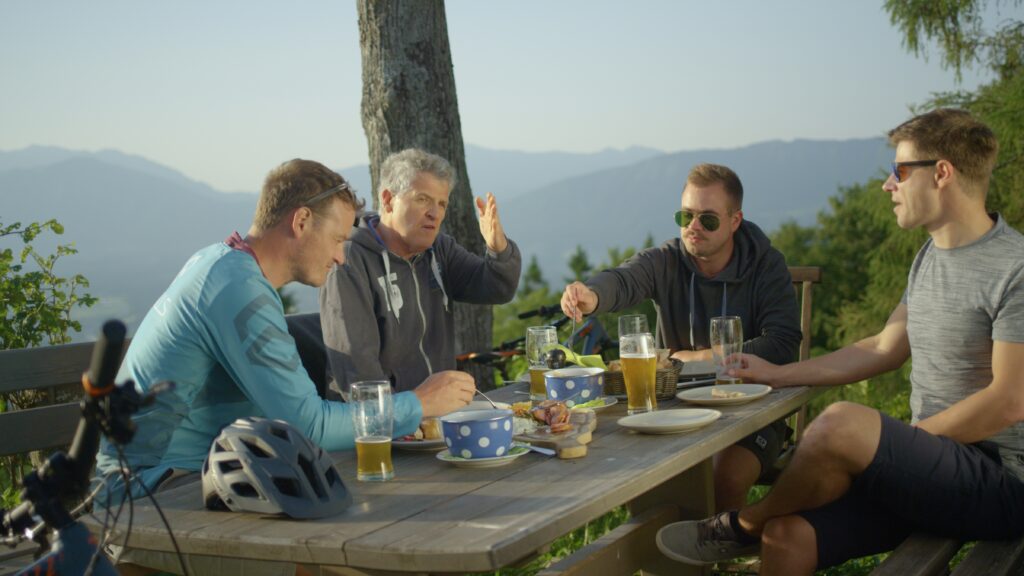You’ll discover connections that enrich your life in surprising ways.

In a world where you’re often surrounded by people your own age – from retirement communities to college campuses – friendships that cross generational boundaries offer something truly special. These connections provide unique perspectives and mutual benefits that same-age relationships simply cannot match.
When you build authentic friendships with people from different generations, you gain access to expanded worldviews, practical wisdom, and emotional resilience that can transform how you see everything around you.
1. You’ll experience history through stories that no textbook could ever capture.

When someone shares their lived experience of historical events you’ve only read about, everything changes. Dates and facts transform into rich, emotional narratives that help you understand how these moments shaped real people’s lives, as Katherine Pearson writes in an article for the New York Times.
As you listen to stories about watching the moon landing live, living through major social movements, or navigating life before smartphones, you’ll develop a nuanced understanding that creates genuine empathy. These personalized glimpses into history will make you see current events differently, recognizing patterns and perspectives you could otherwise miss.
2. You’ll trade skills across the technology divide, becoming more capable in unexpected ways.

That moment when you patiently help your older friend master video calls or they teach you how to make their grandmother’s bread recipe creates a beautiful exchange. These teaching opportunities build confidence on both sides as you share your unique strengths, according to Next Avenue.
Or you could gain practical life skills – home repairs, financial wisdom, cooking techniques – while offering digital knowledge that comes naturally to you. This reciprocal learning establishes equality in your relationship and prevents the power imbalance many fear in cross-generational connections.
3. You’ll transform formal mentoring into friendships that enrich your life far beyond your career.

What might begin as career guidance often blossoms into something much more meaningful when you discover shared values and interests that transcend professional connections. The relationship evolves from hierarchical advice to mutual support that benefits you both, according to the Washington Post.
Whether you’re gaining industry insights from someone who’s navigated multiple career cycles or staying connected to emerging workplace trends through a younger friend, these relationships typically outlast their original context. You’ll create connections that adapt and grow as your careers evolve, potentially becoming one of your most valuable lifelong relationships.
4. You’ll challenge generational stereotypes by seeing the individual behind the label.

Assumptions about “boomers” or “millennials” crumble when you develop a real friendship with someone from another generation. Getting to know an individual always proves more revealing than relying on generalizations.
Maybe the older friend you meet is surprisingly tech-savvy, embraces progressive ideas, and stays engaged with modern trends. Or perhaps your younger friend is exceptionally disciplined, values deep connections, and has a wisdom that defies expectations. Over time, these friendships reshape how you see age groups, replacing stereotypes with real-life experiences.
5. You’ll see your struggles in a new light through a different generational perspective.

When life feels overwhelming, viewing your situation through another person’s lived experience can offer relief and clarity. What seems insurmountable in the present may feel far more manageable in the context of history and time.
A friend who has already faced similar hardships can provide reassurance that difficult seasons pass. At the same time, someone from a younger generation may inspire new ways to approach old challenges, offering creative ideas and alternative perspectives. Together, these insights create a richer, more balanced understanding of the struggles we all face.
6. You’ll broaden your cultural horizons as you share influences from different decades.

Spending time with someone from another generation opens doors to cultural experiences you may have overlooked. Through these exchanges, both of you gain a greater appreciation for music, film, literature, and trends that shaped different eras.
Classic cinema, forgotten musical legends, or books from decades past come alive when an older friend shares why they mattered. Meanwhile, a younger friend can introduce modern entertainment and evolving cultural movements, offering fresh perspectives on today’s creative landscape. These discoveries create a bridge between generations, connecting the past with the present in unexpected ways.
7. You’ll approach life transitions with wisdom drawn from different experiences.

Navigating major life changes is easier when you can learn from someone who has been there before. Whether it’s career shifts, relationships, or personal reinvention, a friend from another generation brings valuable perspective.
Someone older may offer reassurance about transitions you’re currently facing, drawing from their own experience to help you see the bigger picture. On the flip side, a younger friend can reframe past decisions with a fresh take, helping an older adult view their journey with renewed confidence. This exchange of insight softens the uncertainty that comes with change and strengthens emotional resilience.
8. You’ll develop stronger coping skills by learning how different generations handle hardship.

Hard times test everyone, but the ways people cope often vary by generation. Learning how someone from a different era has handled adversity can expand your own resilience strategies.
A friend who has lived through multiple crises may demonstrate patience, long-term thinking, and the ability to endure difficulties with perspective. Meanwhile, someone younger might approach obstacles with adaptability, a willingness to challenge norms, and an openness to unconventional solutions. By blending these strengths, both of you gain a deeper toolkit for handling whatever life brings.
9. You’ll build a more connected community as your social circles grow.

Friendships that cross generational lines don’t just benefit the individuals involved—they also strengthen entire communities. Expanding your relationships beyond your own age group fosters inclusivity, understanding, and greater access to support networks.
An older mentor might introduce you to established organizations, long-standing traditions, or valuable community resources. At the same time, a younger friend can offer insight into emerging movements, fresh opportunities, and modern innovations. When knowledge and resources flow freely between generations, communities become more vibrant and interconnected.
10. You’ll sharpen your communication skills by adapting to different conversational styles.

Engaging with people from different generations requires a flexible approach to communication. Over time, these adjustments make you more effective at expressing yourself clearly and understanding others.
A younger person may find themselves explaining cultural references or shifting their language to bridge generational gaps. Meanwhile, an older friend might become more attuned to modern expressions, technology-driven conversations, or changing social norms. This exchange improves conversational adaptability, making interactions in all areas of life more meaningful and effective.
11. You’ll bridge historical divides by engaging in honest, eye-opening discussions.

The most transformative friendships allow for open, thoughtful conversations about history and its impact. When trust is present, discussing generational differences can lead to deeper understanding and healing.
A younger friend may gain a more nuanced view of past events by hearing firsthand stories from someone who lived through them. On the other hand, an older friend might reconsider past experiences with fresh insight after listening to how those events shaped the present. These exchanges break down barriers, fostering empathy and historical awareness that extends beyond the friendship itself.
12. You’ll find deeper purpose as your influence extends beyond your own age group.

Few things are more fulfilling than knowing your experiences, knowledge, and values will continue to have an impact. Intergenerational friendships create opportunities for mentorship, learning, and the passing down of wisdom.
For older adults, sharing life lessons with younger friends reinforces a sense of legacy and continuity. Meanwhile, younger individuals benefit from a greater connection to the past, gaining insights that help them navigate their own journeys. These relationships offer a profound sense of meaning that goes beyond personal experience, contributing to a larger human narrative.
13. You’ll worry less about aging when you witness the richness in every life stage.

Fears about getting older often stem from stereotypes, but seeing someone thrive in a later stage of life can completely shift your outlook. When intergenerational friendships normalize aging, they also ease anxieties about the future.
An older friend who remains engaged, curious, and fulfilled serves as proof that life doesn’t lose its excitement with age. Conversely, younger friends may find themselves appreciating their own current phase of life more when they see it through the eyes of someone who values its fleeting nature. Together, these perspectives foster a greater appreciation for every stage of life.
